When someone has both a mental health disorder and a SUD, it’s called a dual diagnosis. In the case of anxiety, dual diagnoses are fairly common with alcohol use disorder (AUD), but even more likely with drug addiction. This includes both prescription meds and illicit drugs. People with anxiety are more vulnerable to developing an addiction to benzodiazepines, opioid medications and heroin.
People with anxiety might also turn to opioids as a way to address anxiety symptoms. In some cases, they might have prescriptions for medications that can lead to an opioid dependence. For these reasons it’s important to understand how anxiety, opioid use disorder (OUD) and prescription meds with addictive potential are connected.
The relationship between opioid addiction and mental health disorders like anxiety is complex. Anxiety can increase the likelihood of using opioids, and developing OUD can cause anxiety. While each case is unique, some general factors explain why this happens:
Many individuals with anxiety may turn to opioids as a form of self-medication, seeking temporary relief from their symptoms. Opioids have a pleasurable and relaxing effect, but the brain typically adapts to them very quickly. This means that someone will need to take more and more opioids to have the same effect.
Opioids also have some unpleasant side effects which can be made worse by increasing your intake. Once the brain is used to their presence, it will also crave opioids and you will experience withdrawal symptoms if you stop taking them.
This creates a vicious cycle where your anxiety gets worse if you stop taking opioids, but you feel the need to increase your intake to obtain relief.
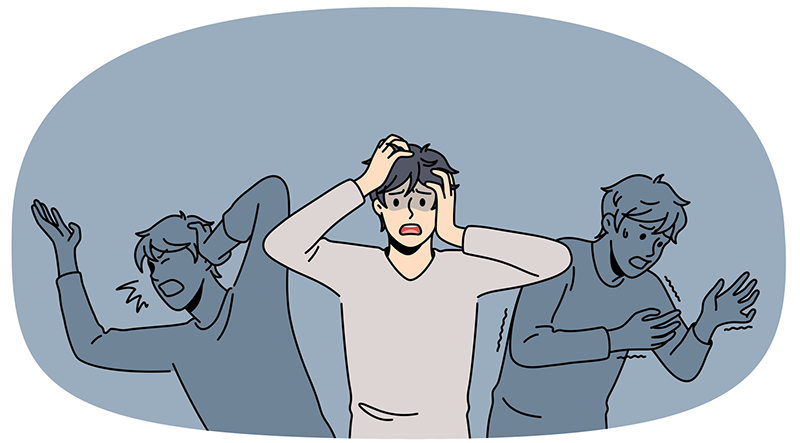
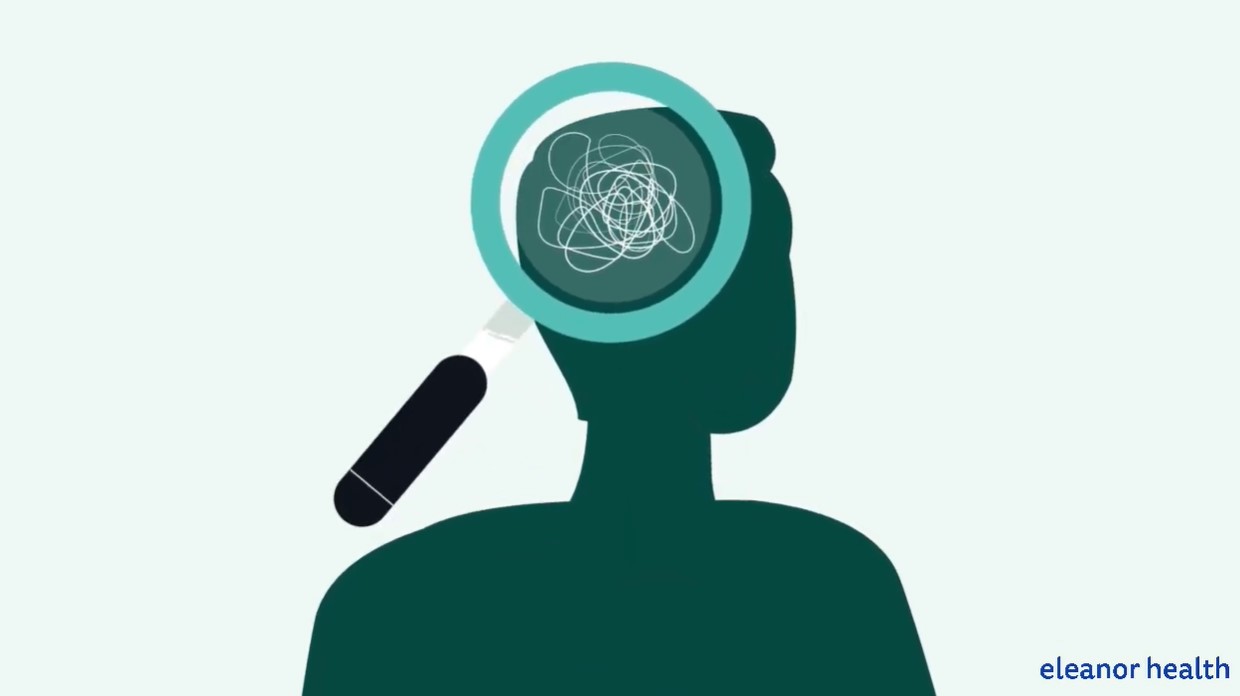
Both OUD and anxiety disorders can cause changes in brain structure and function, particularly in areas related to mood regulation and impulse control. These alterations can make people more susceptible to both conditions.
People with a family history of anxiety disorder are more at risk of developing OUD. There might be genes in your family that increase your vulnerability to both anxiety and the effects of opioids. Traumatic or stressful experiences can also increase the risk of developing these co-occurring disorders.
Studies also show that women are twice as likely to develop an anxiety disorder, while LGBTQIA+ individuals are one and a half times more likely to experience some form of anxiety.
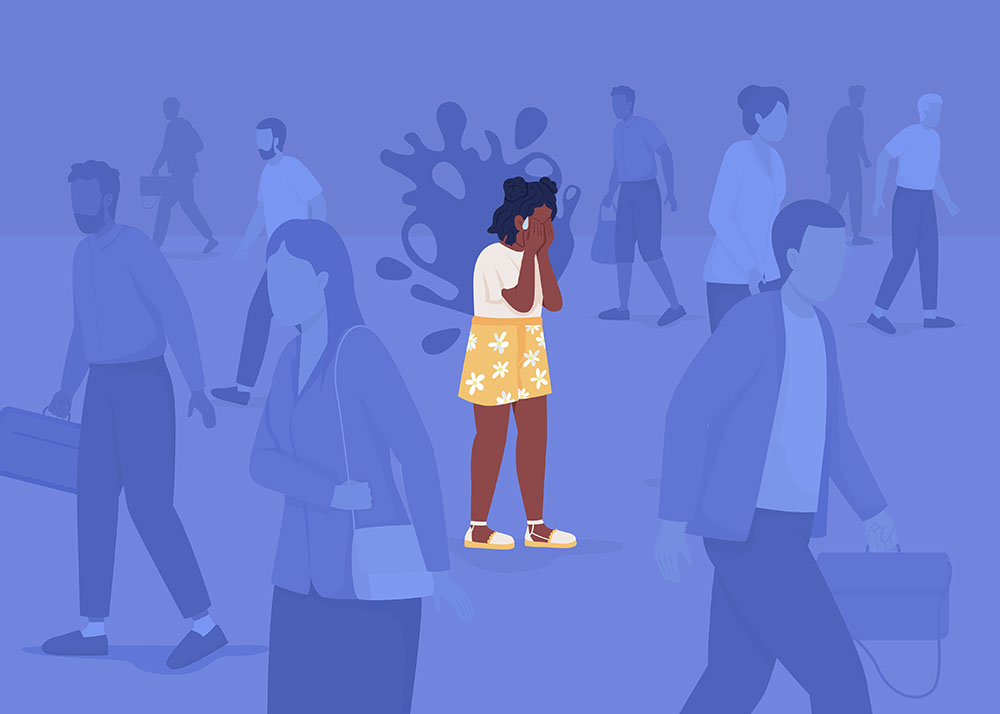

People with co-occurring anxiety and OUD face additional challenges. Most opioids are prescription medications, while some are illicit drugs (like heroin or fentanyl). These substances are more strictly regulated and harder to get than alcohol, which can be freely purchased in most cases.
Struggling to afford or obtain opioids, and worrying about getting caught or facing legal trouble can all increase anxiety and uncertainty.
Some people with anxiety might have a prescription for opioid medication (painkillers) to manage pain. But even with a prescription, regular use of opioid medication can lead to addiction. Make sure to consult your doctor about your prescription meds and whether or not opioid painkillers are safe for you.
There are a number of medications that can help ease anxiety. While most medications are safe to take, there are some considerations regarding treatment and interactions. The following medications are often used to treat anxiety:
Most prescription medications for anxiety are not considered addictive. However, benzodiazepines (like Xanax, Ativan or Valium) are known for their potential for abuse and dependency. While they are generally considered safe for short-term treatment, long-term treatment can lead to addiction. Benzodiazepines work by boosting a brain chemical called gamma-aminobutyric acid (GABA). This chemical has a calming effect. While this can provide short-term relief, it can also make the brain rely on the medication to feel normal.
Benzodiazepines are believed to increase the euphoric effects of opioids. Doctors are still researching how the two drugs interact, but they do know that many patients report that benzos enhance the effect of opioids like heroin, methadone and oxycodone.
Combining benzos and opioids can be very dangerous. It raises the risk of serious complications, overdose and even potential death. It can be incredibly hard to stop using these substances once you develop a dependence. Treatment will need to address both substance use disorders (SUDs) and the underlying anxiety.
One of the biggest challenges for people recovering from OUD, is dealing with the anxiety that often continues after quitting the drug. When someone stops using opioids, their brain has to adjust to functioning without them. This triggers opioid withdrawal, with anxiety as a very common symptom that can persist for several months.
For many people, anxiety is the worst in the first two weeks, when withdrawal symptoms are most intense.
After this “acute” withdrawal phase, physical symptoms usually start to get better, but the anxiety and other emotional struggles can continue for weeks or even months. This extended period of anxiety is known as post-acute withdrawal syndrome (PAWS). Stress from things like social situations, work pressures, or relationship problems can cause anxiety during this phase of recovery, and it may need ongoing treatment to manage.
The good news is that with the right support, anxiety can improve over time, making recovery more manageable.
For people in recovery, managing anxiety is key to staying sober and avoiding relapse. To break the cycle, it’s important to address both anxiety and opioid addiction at the same time. This type of approach is known as “holistic treatment”. It’s meant to address all relevant aspects of your health -physical, emotional and mental – to help you get better and prevent future relapses.
At Eleanor Health, we provide outpatient treatment services for people facing anxiety disorders and opioid use disorder (or other addictions). Our treatment program includes:
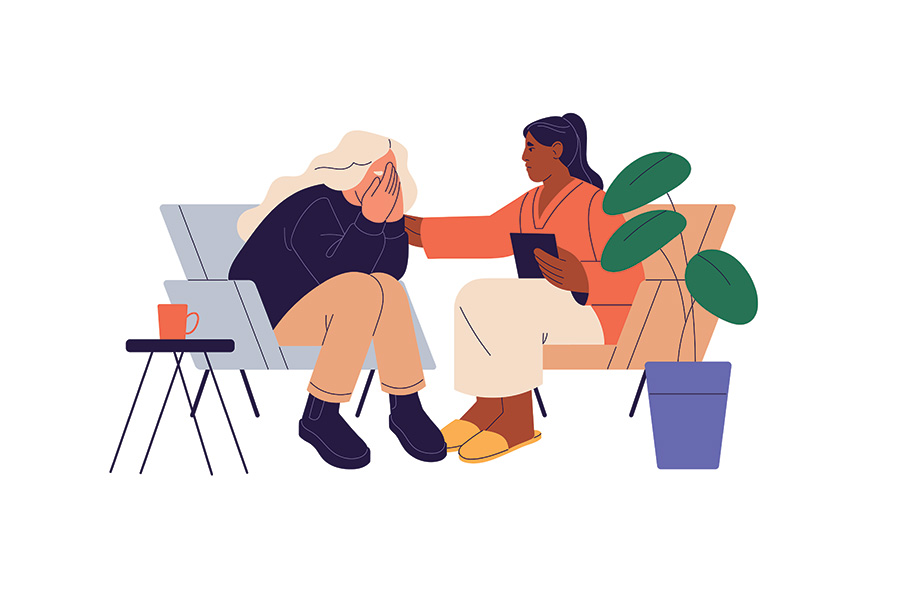
Inner healing and developing new ways of dealing with life’s hardships are an important part of recovery. Our licensed therapists combine different therapeutic approaches and techniques, including Cognitive Behavioral Therapy (CBT), which is very effective for treating both anxiety and opioid addiction.
CBT helps identify and change negative thought patterns that contribute to anxiety and substance abuse using techniques that help manage stress and reduce excessive worry. CBT also helps individuals with opioid addiction recognize triggers that lead to cravings or relapse and teaches healthier ways to cope. It equips people with practical tools to manage their mental health and stay in recovery.
Doctors can prescribe medications to help you break the physical dependence on opioids and help you manage your anxiety. Your clinical team will also help you manage your medications, to avoid any negative interactions and potentially addictive medications, like benzos. We can also help you treat co-occurring benzodiazepine addiction.Medications for Opioid Use Disorder (MOUD) at Eleanor include buprenorphine and naltrexone. These addictions medications are very convenient because they can be prescribed online and taken at home. Your doctor will evaluate your case and determine if you are ready for this or if it’s best to go to the clinic for your meds.
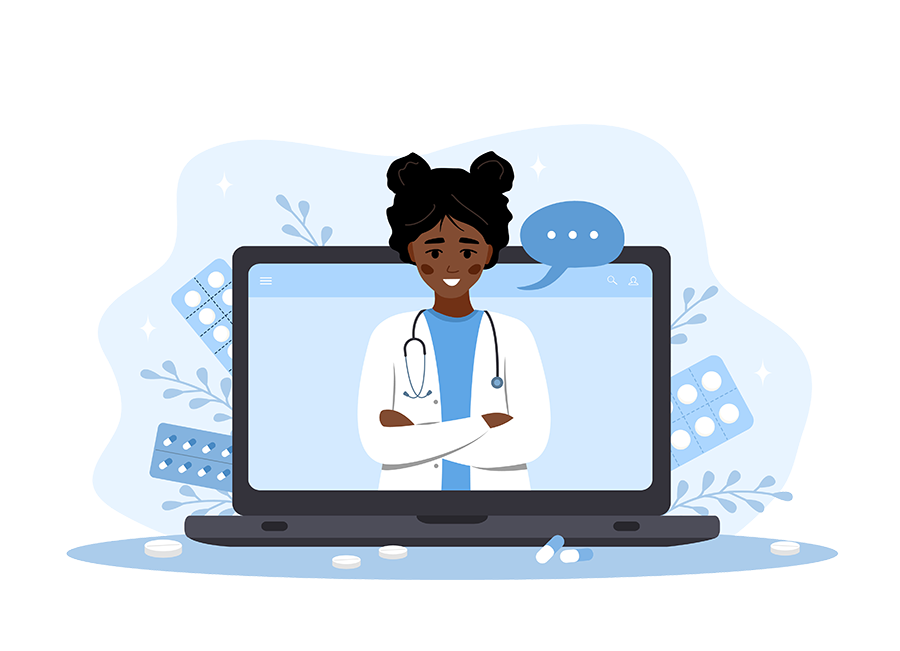
Anxiety and substance abuse—whether it’s alcohol, opioids or other drugs—often go hand-in-hand. If left untreated, these conditions can lead to long-term suffering and even life-threatening consequences.
You don’t have to deal with this alone. At Eleanor Health, we specialize in helping individuals overcome anxiety and addiction, guiding them toward lasting recovery and improved mental well-being.
Don’t suffer or let a loved one carry the burden of anxiety or opioid addiction.